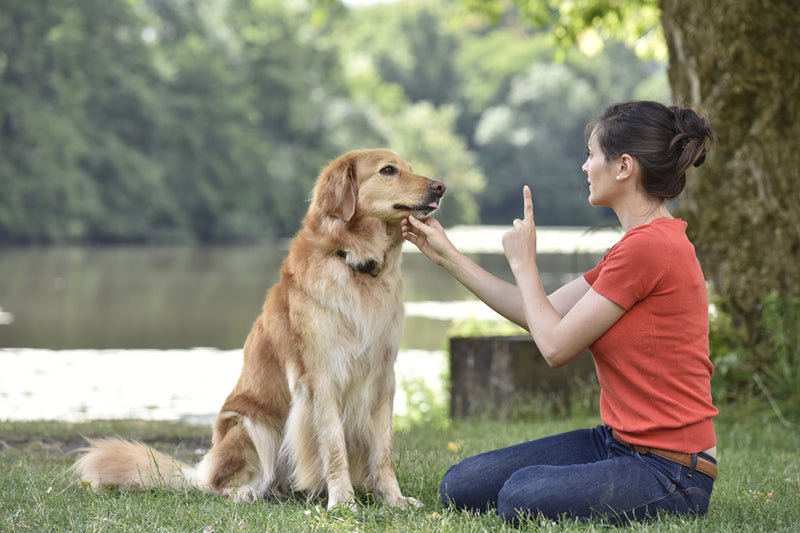Table of Contents
Training an older dog can be a rewarding experience that enhances their quality of life and strengthens your bond. Whether you’re teaching new commands or addressing behavioral issues, understanding the best training tips for older dogs is crucial. This guide offers seven proven techniques to help you train your senior canine effectively.

1. Patience and Positivity
Older dogs may take longer to learn new behaviors compared to puppies, so patience is key. Positive reinforcement is an effective method to encourage good behavior and build trust.
- Reward-Based Training: Use treats, praise, and affection to reward your dog for following commands.
- Consistent Commands: Use the same words and gestures for each command to avoid confusion.
- Short Sessions: Keep training sessions short (10-15 minutes) to maintain your dog’s attention and prevent fatigue.
2. Addressing Physical Limitations
Older dogs may have physical limitations due to arthritis or other age-related conditions. Adjust your training techniques to accommodate their needs.
- Gentle Exercises: Opt for low-impact activities that are easy on your dog’s joints, such as gentle walks or swimming.
- Comfortable Environment: Train on soft surfaces like grass or carpet to minimize discomfort.
- Health Check: Consult your veterinarian to ensure your dog is physically capable of participating in training activities.
3. Building on Existing Skills
Older dogs may already know some basic commands. Reinforce these skills before introducing new ones to build confidence and ensure a smooth training process.
- Review Basics: Start with commands your dog already knows, such as “sit” or “stay,” to refresh their memory.
- Gradual Progression: Introduce new commands gradually, building on the skills your dog has mastered.
- Positive Reinforcement: Continue to use positive reinforcement to encourage and reward good behavior.
4. Mental Stimulation
Keeping your older dog mentally stimulated is essential for their overall well-being. Incorporate brain games and puzzles into your training routine.
- Interactive Toys: Use toys that challenge your dog’s problem-solving skills, such as treat-dispensing puzzles.
- Hide and Seek: Hide treats around the house and encourage your dog to find them, providing both mental and physical exercise.
- Training Games: Play games that require your dog to think, such as teaching them to retrieve specific toys by name.
5. Socialization
Socialization remains important for older dogs. Continue to expose them to new environments, people, and other pets to maintain their social skills.
- Regular Outings: Take your dog on regular outings to parks, pet-friendly stores, and other public places.
- Controlled Interactions: Ensure interactions with new dogs and people are positive and controlled to prevent anxiety.
- Group Classes: Enroll in training classes or social groups specifically designed for senior dogs.
6. Consistent Routine
Consistency is crucial when training older dogs. Establishing a routine helps them understand what is expected and reduces stress.
- Set Schedule: Feed, walk, and train your dog at the same times each day to create a predictable routine.
- Clear Commands: Use clear and consistent commands to avoid confusion.
- Daily Practice: Incorporate short training sessions into your daily routine to reinforce good behavior.
7. Addressing Behavioral Issues
Older dogs may develop behavioral issues due to changes in their environment or health. Identifying and addressing these issues is essential for successful training.
- Identify Triggers: Observe your dog to identify what triggers negative behaviors, such as certain noises or situations.
- Behavioral Training: Use positive reinforcement to address issues like separation anxiety, aggression, or fearfulness.
- Professional Help: If behavioral issues persist, consider consulting a professional trainer or behaviorist.
Additional Resources on Training Tips for Older Dogs
For more detailed information and support, check out these trusted resources:
Understanding training tips for older dogs is crucial for enhancing their quality of life and maintaining a strong bond with your pet. By following these seven proven techniques, you can help your senior dog learn new behaviors and skills. For more resources on pet care, visit our Pet Care section.
FAQs
Can older dogs still learn new tricks?
Yes, older dogs can still learn new tricks. While they may take longer to learn compared to younger dogs, patience and positive reinforcement can help them master new skills.
How can I keep my older dog motivated during training?
Use high-value treats, praise, and affection to keep your older dog motivated. Short, frequent training sessions can also help maintain their interest.
What should I do if my older dog has mobility issues?
Adjust your training techniques to accommodate your dog’s physical limitations. Use gentle exercises and train on soft surfaces to minimize discomfort.
How do I address behavioral issues in older dogs?
Identify triggers for negative behaviors and use positive reinforcement to address them. If issues persist, consider consulting a professional trainer or behaviorist.
Is mental stimulation important for older dogs?
Yes, mental stimulation is crucial for older dogs. Incorporate brain games, interactive toys, and training games to keep their minds active and engaged.
Can socialization help reduce behavioral issues in older dogs?
Yes, regular socialization can help reduce anxiety and behavioral issues in older dogs. Controlled interactions with new environments, people, and other pets are beneficial.
Conclusion
Training tips for older dogs are essential for maintaining their quality of life and strengthening your bond. By understanding and applying these seven effective strategies, you can help your senior dog learn new behaviors, stay mentally stimulated, and enjoy a happy and fulfilling life.
Get LIFETIME ACCESS to “My Private Prompt Library”: https://bit.ly/MTSPromptsLibrary
Looking for a custom GPT? or SEO services for your website? Hire me on Fiverr: https://bit.ly/Hire_me_as_a_Freelancer
============================================
Get LIFETIME ACCESS to “My Private Prompt Library”: https://bit.ly/MTSPromptsLibrary











